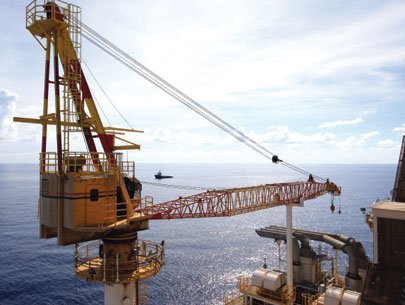|
State will collect its dividends from SOEs
The government’s
proposal to collect dividends from the shares it holds in state owned
enterprises (SOEs) has got prompt approval from the National Assembly.
Economists have commented that the decision should have been made earlier.

Over many years, the State does not
collect dividends from the enterprises it invests in. The sums of money have
been left at the SOEs for the enterprises re-investment. While the left
dividends have been increasing year after year, the capital use efficiency
has not increased accordingly.
How much can the State earn?
According to the Central Steering
Committee on Enterprise Renovation and Development, by the end of 2012, the
total state’s stockholder equity in economic groups and general corporations
had reached VND735.293 trillion. This means that if the State just collects
10 percent of the dividends every year from these sources, the state budget
would have VND7.352 trillion more.
The Vietnam Association of Financial
Investors (VAFI) has estimated that if the State begins collecting 10 percent
of its dividends from this year, it would have VND6.3-8.4 trillion.
The figure is still lower than the
figure estimated by the Ministry of Finance and submitted to the National
Assembly’s 6th session, about VND9.5 trillion. This does not include the
dividends from the SOEs put under the management of the State Capital
Investment Corporation (SCIC), the corporation specializing in making
investment in enterprises with state’s money.
By the end of 2012, the profits made
by 73 economic groups and general corporations had reached VND184.957
trillion. Of these enterprises, 46.5 percent got the ratio of profit on
stockholder equity of 10 percent and 24 percent got the ratio at over 20
percent.
Once the dividends from the SOEs put
under the management of ministries, branches and local authorities, and the
profits from 100 percent state owned economic groups go to the state budget
from 2013-2014, the budget would have trillions of dong more to spend, while
it would not have to borrow from foreign sources or issue bonds.
What will happen?
Showing the strong protest was the
prompt action taken by the managers of the state owned economic groups and
general corporations when hearing that the government has made the proposal
to the National Assembly.
Tran Xuan Hoa, Chair of the Vietnam
Coal and Mineral Industries Group (Vinacomin), affirmed that the stockholder
equity of the group has only increased to VND35 trillion after the last 19
years because the State did not take dividends every year. And now, if the
group cannot use the dividends for its re-investment plans, it would lack
capital for the investment and development.
A lot of questions remain unanswered,
because it’ll take the government some more time to release a document to stipulate
the collection mechanism.
Many holding companies do not make
production, but live on the dividends and profits from the State’s capital
contribution to their subsidiaries and joint ventures. What will happen if
the subsidiaries also protest against the dividend collection mechanism like
Hoa from Vinacomin, and if the government accepts to leave profits at
subsidiaries? How will the holding companies be able to earn money to run
their apparatuses?
It’s still unclear about the
dividends to be collected by the state budget this year, VND9.5 trillion as
reported by the government to the National Assembly, or VND6.5 trillion only
as said by Deputy Prime Minister Vu Van Ninh on the sideline of the ongoing
National Assembly’s session on November 14 due to the current economic
difficulties.
TBKTSG
|
Thứ Tư, 5 tháng 2, 2014
Đăng ký:
Đăng Nhận xét (Atom)
Không có nhận xét nào:
Đăng nhận xét